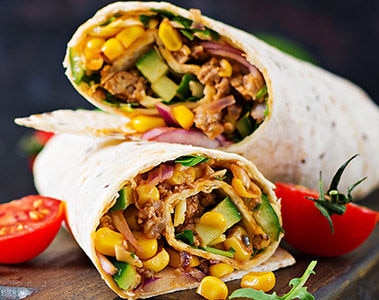
31 May 2021
News
June 28, 2023

“We are living in truly exciting times in the food & beverage world. Thanks to the wonders of science – and in particular biotechnology - we have a golden opportunity to change the way that our society produces and consumes food. One great example is in the growth of the plant-based sector – where our own solutions are contributing to all kinds of new dairy, cheese, meat & fish alternatives.
But there’s one plant-based food that can be easily overlooked. In fact, it’s the oldest plant-based food that humans have created (10,000 years and counting). Bread! For 11 years now, I’ve worked as an application and innovation manager at dsm-firmenich, focusing specifically on baked goods. It’s a passion. Not just because I love to eat and bake myself, but because of all that we are now doing to ensure that our daily bread (as well as cakes, croissants, cookies – you name it) is healthier for people and the planet. Here’s a brief ‘taste’ of how…” – Judith van Peij, Innovation Manager, dsm-firmenich
Traditionally, baking was always considered to be an art – where recipes and processes were lovingly perfected over many years. Following the agricultural revolution, we eventually moved to the industrial revolution – where mass-produced baked goods became more of a science. Now? We see the wheel turn once more. Manufacturers want to produce baked goods with the wonderful sensory qualities and goodness that artisan bakers have achieved for centuries – but at mass scale. So, what’s the solution?
At dsm-firmenich, the cornerstone of our baking solution is biotechnology; and particularly enzymes - proteins that occur in nature and enable biological reactions to happen faster. Our baking enzymes are produced via a long-established microbial fermentation process and then used by customers to make targeted and predictable molecular conversions in the recipe. In turn, these bring a wide variety of properties to baked goods, including improved dough handling, dough stability, volume, crumb structure and softness.
So far so good, but adding enzymes to the industrial baking recipe, doesn’t just improve the nutritional and sensory qualities of baked goods. Because they are classed as natural processing aids, enzymes achieve this with a clean label. Furthermore, enzymes are dosed at lower levels than traditional baking ingredients like emulsifiers; and have a far lower carbon footprint in production. Enzymes are also robust and versatile. They can make more challenging flours like lower quality and wholewheat flour perform better. In fact, in case of dietary constraints or in certain countries where wheat is scarce, our customers can use our enzymatic solutions to make wheat -free or gluten-free bread that looks and tastes great.
Perhaps most importantly of all, baking enzymes take a huge bite off of food waste. I’ll admit it: there are times when I’ve gone to bed at night thinking about the 30% of the world’s food that gets wasted – not least bread. With enzyme technology, we’re able to extend the shelf life of baked goods - sometimes by multiple days or multiple weeks with regards to softness. Great for consumers (and their shopping budgets), but even better for the planet.
I mentioned synthetic emulsifiers earlier. Baking enzymes can provide similar functional benefits than traditional, chemical-based ingredients like DATEM used in baked goods. There have also been other developments. Just a few years ago, you would have seen the phrase ‘chemical oxidizers’ on a bread label. Enzymes have now made these ingredients almost obsolete.
On top of this, to address growing health concerns, we have made significant progress in mitigating the formation of acrylamide by use of PreventASe® (asparaginase). Acrylamide is a concerning ingredient formed when food containing reducing sugars is processed at high temperatures (baking, frying etc ) and asparaginase is added to food products like snacks, cookies, cereals etc to prevent the formation of it.
Our enzymes enable a reduction of eggs in cake recipes without any compromise, promoting animal health through the use of cage-free alternatives rather than relying on preserving animal protein.
I’ve talked a lot about enzymes. But of course, building a better food future goes beyond this. At dsm-firmenich, we’re developing all kinds of complementary baking ingredients and solutions that can improve the health of people and planet even further. Bread fortified with sustainably sourced Omega-3, anyone?
Ultimately, there are many small actions we can take as private citizens to help build a better baking future. But for myself and my team, there is one thing above all others that holds the key to success: the continued appliance of science!